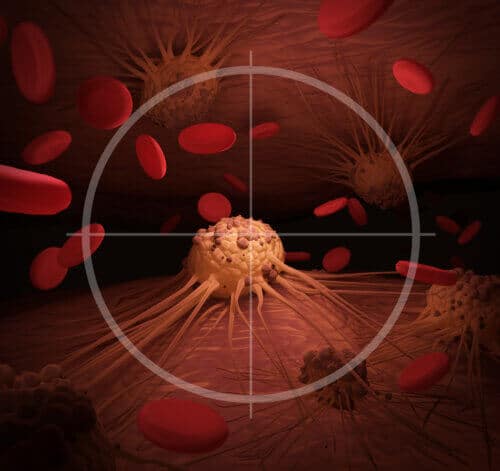The research group of Prof. Tomer Shlomi from the Faculty of Computer Science, the Faculty of Biology and the Lockey Center for Life Sciences and Engineering at the Technion discovered a process based on which it is possible to selectively and specifically damage cancer cells without causing damage to healthy tissue

One of the challenges in cancer treatment is the selective elimination of cancer cells, without damaging the healthy tissue around them. One of the ways to do this is to find processes that distinguish cancer cells and send a drug into the cancer environment that affects only those processes. Thus, even if the drug reaches healthy cells, it will not harm them.
Those cancer cells are not from one part but a vast and diverse family, and processes that characterize one cancer cell do not necessarily exist in another cancer cell. Therefore, when we come to treat the tumor in the manner described above, we must know in advance if the processes we 'intercept' in the treatment are indeed typical of the target cell. This is the only way we can adapt the treatment to the tumor, as personalized medicine strives for. If we know in advance whether the tumor will respond to the treatment, we can save time and resource-consuming trial and error, and above all, may allow the tumor to thrive until the exact appropriate treatment is found.
The research group of Prof. Tomer Shlomi from the Faculty of Computer Science, the Faculty of Biology and the Lockey Center for Life Sciences and Engineering at the Technion discovered such a process - a process based on which it is possible to selectively and specifically damage cancer cells without causing damage to healthy tissue. The findings were published in the journal Cell metabolism.
The aforementioned process is the folate cycle - an essential component in the production of DNA and RNA. Since the production of DNA is a crucial step in cell division and therefore also in the development of a cancer tumor, damage to the folate cycle is chemotherapeutic target Acceptable. The problem is that for the exact same reason, damage to this cycle also causes damage to healthy tissues and therefore also side effects.
At this point there is a difference between healthy cells and certain cancer cells. In healthy cells there are two folate cycles - one occurs in the cytosol, the fluid that fills the cell, and the other in the mitochondria, the energy producer in the cell. Therefore damage to the cytosolic cycle will not lead to the elimination of the cell but to the conversion of the cytosolic path to the mitochondrial path, and the cell will survive. In some cancer cells, on the other hand, only the first cycle, the cytosolic, exists, and damage to it will lead to cell death.
That is why it is very important to identify, even before the start of treatment, the type of cancer cell - is it indeed a cell of the described type and damage to the cytosolic pathway will lead to its death. Here, too, the research group found the solution: identifying the cell's sensitivity to damage to the cytosolic pathway based on the level of a protein called RFC. This protein, located on the cell membrane, controls the entry of folates into the cell. Therefore, a low protein level indicates that blocking the cytosolic pathway will lead to the death of the cancer cell.
In conclusion, Prof. Shlomi's research group has developed a therapeutic concept based on the identification of the vulnerable cancer cells and damage to the cytosolic folate pathway. Due to the metabolic difference between these cells and the healthy cells, this treatment will only damage the vulnerable cancer cells and not the surrounding healthy tissues.
For the full article at Cell metabolism
More of the topic in Hayadan:
